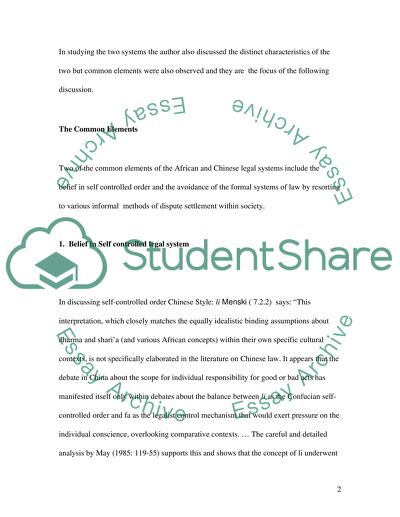Cite this document
(“The African and Chinese legal systems Essay Example | Topics and Well Written Essays - 2000 words”, n.d.)
The African and Chinese legal systems Essay Example | Topics and Well Written Essays - 2000 words. Retrieved from https://studentshare.org/law/1536005-the-african-and-chinese-legal-systems
The African and Chinese legal systems Essay Example | Topics and Well Written Essays - 2000 words. Retrieved from https://studentshare.org/law/1536005-the-african-and-chinese-legal-systems
(The African and Chinese Legal Systems Essay Example | Topics and Well Written Essays - 2000 Words)
The African and Chinese Legal Systems Essay Example | Topics and Well Written Essays - 2000 Words. https://studentshare.org/law/1536005-the-african-and-chinese-legal-systems.
The African and Chinese Legal Systems Essay Example | Topics and Well Written Essays - 2000 Words. https://studentshare.org/law/1536005-the-african-and-chinese-legal-systems.
“The African and Chinese Legal Systems Essay Example | Topics and Well Written Essays - 2000 Words”, n.d. https://studentshare.org/law/1536005-the-african-and-chinese-legal-systems.


